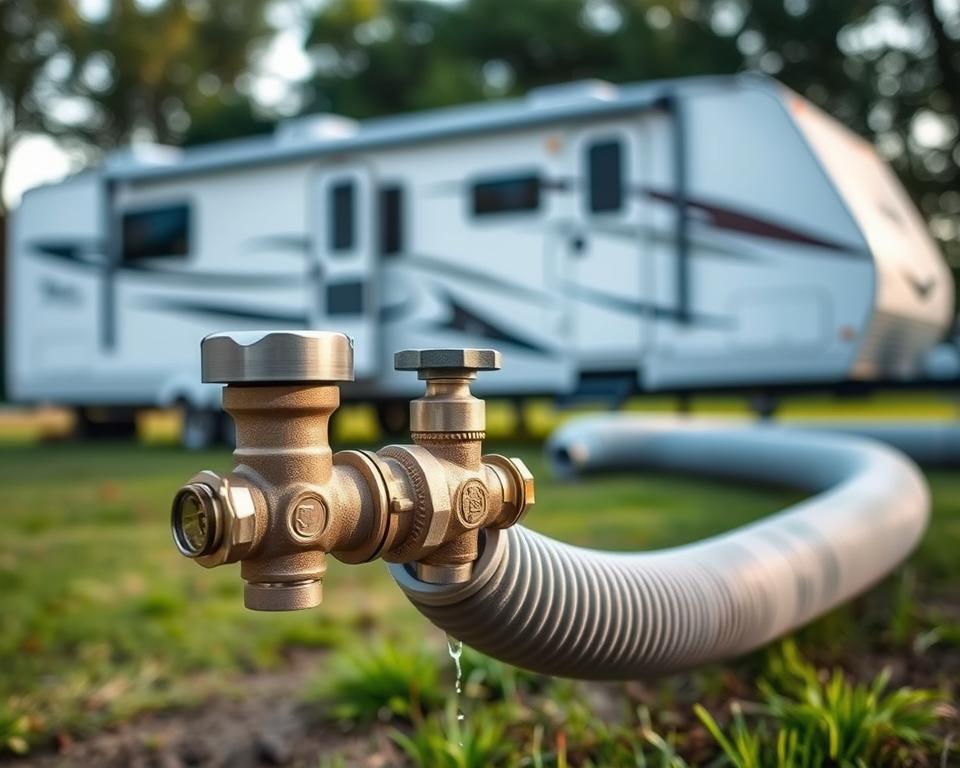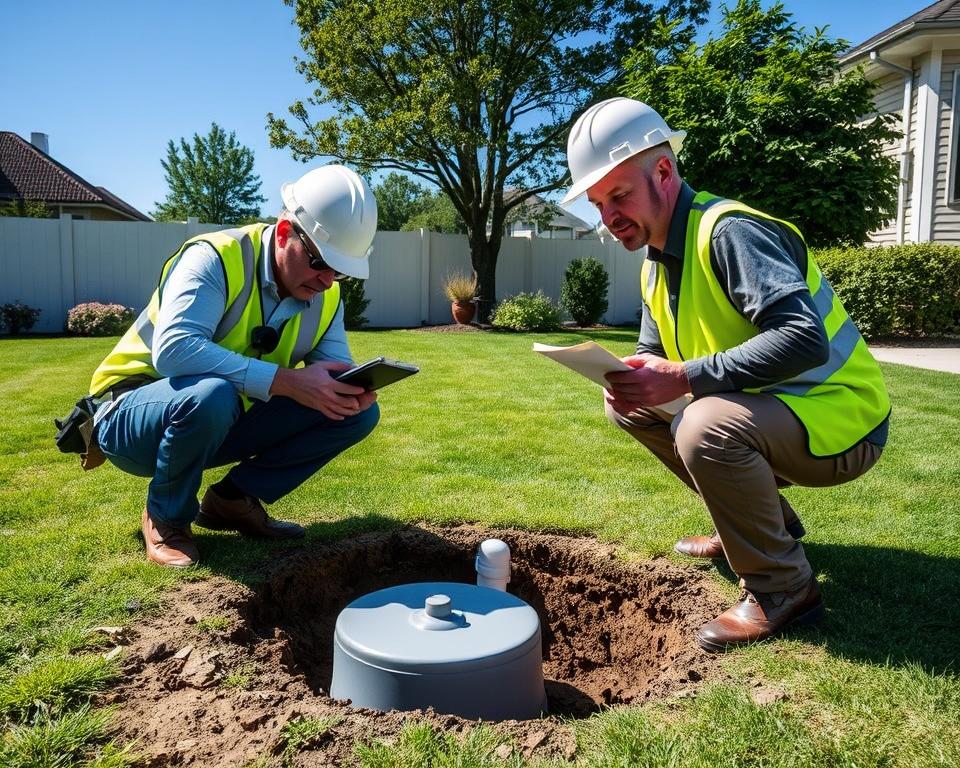Pumping Your Septic System
Do you ever think about how often you should arrange septic system pumping to avert costly failures? With in excess of 20 percent of U.S. households depending on septic systems, understanding their maintenance is essential. Having a clear idea of when to book a septic tank service is critical to its longevity. Moreover, there are economical septic pumping services that provide excellent functionality minus the big price tag. This guide covers essential upkeep tips useful for every homeowner.
Fundamental Insights
- Scheduled septic system pumping is vital for smooth operation.
- Recognizing the indicators that suggest the necessity for service can head off major issues.
- Choosing qualified septic system pumpers secures reliable maintenance.
- Budget-friendly septic pumping alternatives are within reach for homeowners.
- Regular inspections contribute to peak system performance.
Getting to Know Your Septic System
A septic system performs a key role in managing household wastewater, made up of several essential components that function together. The main drain line conveys wastewater from your home to the septic tank, where the process begins. In the tank, an underground chamber, solids sink at the bottom, and bacteria break down these solids, cleaning the waste efficiently.
The processed liquid discharge next moves from the septic tank to the distribution box, where it is distributed evenly across the drain field or leach field. Here, the soil extends the filtration, additionally purify the wastewater. Comprehending the functions of these septic system parts is critical. It empowers homeowners to monitor and maintain their systems efficiently.
Knowing how your septic system operates allows you to take proactive maintenance measures. It’s beneficial to have regular appointments with qualified service providers of septic systems – RV sewer pumping service. They provide crucial insights for optimal operation of your system. These professionals aid in arranging the essential pump-outs and checks. This attentiveness can significantly lengthen your septic system’s lifespan.
Why Septic System Maintenance Matters
Maintaining your septic tank on a routine basis is key for homeowners who aim for their system to last. A well-cared-for system delivers peace of mind and protects your property’s value. Without proper care, you’re risking system breakdowns and health dangers.
Choosing a high-quality septic pumping service is essential. They deliver timely inspections and pump-outs, extracting sludge and scum buildup. If maintenance is neglected, emergency pumping may be required, which is expensive.
Adhering to a consistent maintenance plan is wise. It entails professional evaluations and regular pumping. This proactive measure helps avoid urgent issues, creating a safer living environment for everyone.

How to Tell Your Septic System Requires Service
Being alert to septic system issues can sidestep costly repairs and major damage. Common signs indicate when your system requires a check. These comprise:
- Delayed drains throughout the house
- Pooling water in the yard above the drain field
- Foul odors near the septic tank or leach field
- Unusually lush grass growth in certain areas of your yard
These symptoms could point to problems that might lead to your system failing. Swift intervention is essential. Reaching out to septic pumping experts for an inspection aids. Timely action stops minor issues from growing into large ones. Moreover, routine upkeep ensures your system works well and remains durable.
Optimal Approaches to Septic System Pumping
Timely pumping of your septic tank is imperative to avoid hefty clogs and backups. It’s necessary to determine the right frequency for maintenance. Homeowners should typically plan pumping every 2 to 5 years, depending on the tank’s size and household wastewater levels. Intensive use of garbage disposals may require more frequent pumping.
Using professional pumpers means your tank gets a complete clean and check-up. During pumping, professionals look for any issues, such as faulty baffles. Spotting these problems early avoids larger expenses and inconveniences later. Routine pumping schedules and expert help secure your septic system’s efficient operation.
Routine Inspections for Optimal Performance
Routine inspections are crucial for your septic system’s performance. Septic system inspections uncover early issues before they worsen. Experts advise inspections every three to five years, guided by system size and household usage. This sidesteps costly fixes.
Maintaining maintenance records is important for monitoring your system’s condition. These records provide insights into previous inspections, repairs, and suitable intervals to schedule septic tank cleaning services. With this information, organizing for future upkeep becomes easier, keeping septic systems in prime shape.
Frequent inspections and detailed record-keeping not only improve system efficiency but also lengthen its life. This method safeguards the environment and the investment in a safe, operational home.
| Inspection Type | Recommendation Frequency | Benefits |
|---|---|---|
| Visual Inspection | Annually | Identify surface issues |
| Professional Inspection | Every 3–5 years | Assess functionality and detect problems |
| Septic Tank Pumping | Every 3–6 years | Prevent overflow and system failure |
Water-Saving Habits for a Healthier Septic System
Efficient water use is crucial for keeping your septic system robust. It not only helps the environment but also improves the performance of your home’s plumbing. By practicing simple, yet effective, conservation methods, homeowners can cut down on wastewater.
Spread out your laundry activities over the week instead of doing them all at once. This helps the septic system to process water better and prevents tank overflow. Opting for low-flow fixtures in your kitchens and bathrooms yields considerable water savings, keeping the water pressure up while cutting the flow rate, thus trimming the amount of wastewater produced each day.
Swiftly fixing leaks is another method to assist your septic system. Even a small leak can lead to a large waste of water, overburdening the septic system. Through periodic inspections and repairs, you contribute significantly to the system’s efficiency.
Prioritizing water conservation isn’t just good for your septic system; it’s also a step towards environmentally responsible living. Embedding such practices a part of your lifestyle benefits both your household and the planet.
Proper Handling of Household Waste
Homeowners carry a vital role in maintaining their septic system’s health by disposing of household waste correctly. It’s essential to avoid throwing away non-biodegradable items like wipes, plastics, and other damaging products in the system. These items can create clogs, leading to costly repairs and a decrease in efficiency.
Recycling food scraps and organic materials is a helpful alternative to sending them to landfill. This practice markedly lowers the amount of solid waste entering the septic tank. Emphasizing biodegradable waste disposal supports the ecological balance needed for effective waste management.
It’s important to keep an eye on what goes down the drains. Non-decomposable items can requiredemand more frequent septic tank pumping. By learning and adhering to correct waste disposal methods, you can ensure a more efficient and long-lasting septic system.
Choosing Septic-Friendly Cleaners
The health of your septic system is heavily influenced by your choice of cleaning products. Using septic-safe cleaning products is crucial. These products protect the balance of beneficial bacteria that decompose waste. Many standard cleaners include harmful chemicals that threaten this balance, leading to costly repairs or system failure.
Homeowners should consider natural alternatives that are both powerful and environmentally friendly. Common household items like baking soda, vinegar, and lemon juice are superb choices. These natural cleaners are not only effective but also maintain your septic system’s health.
Steering clear of products that contain antibacterial agents and chlorine bleach is crucial. Such substances damage the beneficial good bacteria, compromising your system’s functionality. By picking sustainable products, you protect both the efficiency and longevity of your septic system.
Bacterial Health and Your Septic System
Bacteria play a key role in keeping your septic system healthy. They break down solids naturally and improve nutrient processing. A lack of healthy bacteria can lead to system failure, bringing about expensive repairs.
Homeowners can enhance their system by introducing organic additives. These products boost beneficial bacteria, making waste decomposition faster. It’s important to select organic additives that are helpful, not harmful, to the septic environment.
A strong bacterial community is crucial to a septic system’s longevity and efficiency. It stops solid buildup and reduces the need for repeated pumping. Prioritizing bacterial health creates waste management more effective and eco-friendly.
The Bottom Line
Septic system care is vital for the durability and functionality of your home’s wastewater system. Following key maintenance tips prevents costly repairs. Understanding routine pumping and inspections is key. This guarantees your septic system remains in excellent condition.
Educating yourself on your septic system’s operation and smart approaches in water and waste management is crucial. Engaging professionals like All in Sanitation offers expertise. This contributes to your septic system’s long-term health and gives peace of mind.
Investing in proper septic maintenance today delivers future benefits. It shields your home and improves your family’s quality of life. Focusing on septic system care gives assurance with a well-maintained system.


